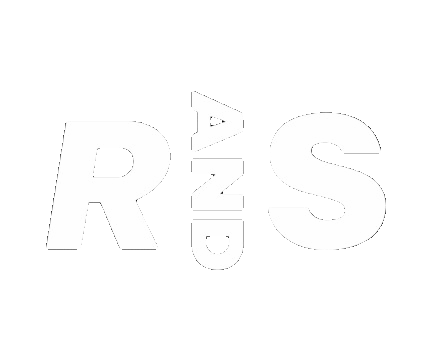3 minute read
John Coates made a last-ditch financial offer to two International Olympic Committee members from Africa ahead of the vote for the host of the 2000 Games.
Dining with two Africans at a plush Monte Carlo hotel, John Coates sensed them wavering.
It was September 22, 1993 - the night before the International Olympic Committee (IOC) voted for the host of the 2000 Olympics.
And it was the dinner vital in delivering Sydney the Games.
Coates, the Australian Olympic Committee heavyweight, had been counting the numbers for years. And he was counting on Africa.
Ninety IOC members were due to vote but one, Bulgaria's Ivan Slavkov, was under house arrest in his country, leaving 89 to decide between Sydney, Beijing, Manchester, Berlin and Istanbul.
Coates reckoned a lack of African votes scuppered previous bids from Brisbane and Melbourne to host the 1992 and 1996 Games respectively - he believed the Australian cities gained just one African vote.
So on the eve of the 2000 vote, he dined with Kenya's IOC member Charles Mukora and Uganda's IOC member Francis Nyangweso, who was a major-general in Idi Amin's notorious regime.
"That night, I felt that the two IOC members at my table from two of the countries I was counting on were very uneasy," Coates told AAP.
He and former Australian prime minister Gough Whitlam had just visited 13 African countries.
The presence of Whitlam, revered in Africa for his anti-apartheid stance when prime minister, reflected brightly on local IOC members.
"Wherever we visited, we would elevate in status the IOC member ... he would be seen with his president or king or prime minister," Coates said.
Africans regarded meeting Whitlam as a great honour - whenever African IOC members visited Australia, the ex-PM and his wife Margaret hosted them for dinner at their Sydney home.
Coates had also signed cooperation agreements with 11 African countries - Cameroon, Congo, Ivory Coast, Kenya, Mali, Mauritius, Nigeria, Swaziland, Togo, Uganda and Zimbabwe.
Under the agreements, Australia offered training facilities and coaching assistance to the nations regardless of the outcome of the 2000 bid.
Coates thought he had some African votes covered when he arrived in Monte Carlo among a 70-strong Australian delegation for the final push.
The Australians had 90 personal gifts for the IOC members and their spouses among 39 tonnes of cargo.
They delivered baskets of Australian produce to every IOC member's hotel room with invitations to visit Sydney's hospitality suite.
They hosted celebrity lunches; golf at the exclusive Monte Carlo GC; Evonne Goolagong Cawley hosted a round-robin tennis tournament; Kieren Perkins gave swimming lessons.
Australian performing troupes wandered Monte Carlo streets; Indigenous musicians played the didgeridoo outside the Hotel de Paris, where IOC members stayed.
The Sydney bid left letters, tied with ribbons, from Australian schools on the hotel pillows of IOC members with the message 'please give Sydney the Games'.
But Coates got wind of last-ditch lobbying by Brazil's powerful IOC member Joao Havelange for African members to vote for Beijing.
Hence the dinner with Kenya's Mukora and Uganda's Nyangweso, where Coates played his last card.
He offered both Africans a sum of $US35,000 ($A48,500) over seven years - $US5000 ($A6,930) a year - to help their respective national Olympic committees.
The offer was contingent on Sydney winning the vote.
The canny Coates ensured the offer came from the AOC - if it came from the Sydney bid team, it would have broken IOC rules.
"I certainly did say that, it was for additional assistance for any sporting projects they might have," Coates said.
"Whether they were doing the right thing, or I was doing the right thing, you understand for these sporting officials, if there's an opportunity to develop sport in their country, then they will take it in those circumstances.
"You're not allowed to do that these days.
"But we did it around the edges.
"And that was done by the Australian Olympic Committee and that was OK. The bid committee couldn't do it, they couldn't offer assistance like that.
"And so it ticked the boxes when it was eventually looked at."
On the day of the vote, September 23, 1993, Coates was more relaxed than at dinner the previous night.
So relaxed, after a morning IOC gathering, he took an afternoon nap.
He was confident about the evening's vote.
Other candidates Manchester, Berlin and Istanbul were knocked out after the 89 members voted in early rounds.
And Coates knew before others. Venezuela's IOC member Flor Isava Fonseca arranged a signal: if Sydney made the final round, she would wear a floral scarf when re-entering the hall - she did.
Coates received other signals.
"I was relaxed when the scrutineers carried the envelope, two of them winked at me as they went on stage, they were friends of mine," he said.
"For them to wink, they would have known we were in the last two."
Sydney versus Beijing.
It would come down to 88 voters as Swaziland's IOC delegate, David Sibandze, suddenly departed after two of the four voting rounds.
(Coates had previously organised for Sibandze's daughter to attend a home economics course in Sydney. Some suspect the Swazilander voted for Beijing, then Sydney, to fulfil promises to both, then exited.)
IOC president Juan Antonio Samaranch announced the winner: Syd-er-ney.
The final vote was 45-43.
Coates believed Sydney gained six votes from Africa.
He will never know for certain if the two deciding votes were delivered on a dinner plate the previous night.
But, as Coates puts it: "It probably had something to do with the final vote."
The IOC later cleared Coates' dinner offers, as did an Australian inquiry by former South Australian auditor-general Tom Sheridan.
The Sheridan findings were delivered in 1999.
The same year, Kenya's Mukora and Swaziland's Sibandze resigned from the IOC when facing expulsion after being implicated in the bribery scandal of the Salt Lake City Winter Olympics.
Uganda's Nyangweso was also implicated. He denied wrongdoing and remained on the IOC.







